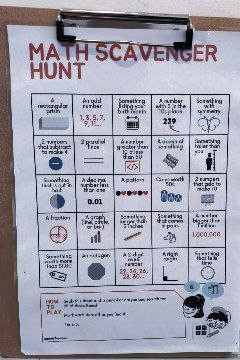But what about maths...?
- West Cork Sudbury School

- Oct 24, 2024
- 4 min read
by Jessica Mason
Maths is everywhere in our world...
...from the meta scale of the universe to the micro of patterns in nature and atomic structure. Likewise in our day to day human existence, maths is everywhere: from telling the time, to building blocks in Minecraft, following a recipe to buying something in a shop, these activities
require numerical skills. As we grow into adulthood, those mathematical skills will become more apparent as we have to learn to budget, weigh up interest rates or just see how much of a bargain something is in a sale.

When it comes to self-directed learning we can start to panic that children won’t learn if they a aren’t being taught. But experience from both Sudbury schools and the unschooling community is that they do. Even in the last four years at WCSS we have seen how students acquire knowledge from their day to day experience at school, but also how once they have the intrinsic motivation they become very focused and determined learners.
For day to day life the maths covered in primary education will get you by, of course some careers will require more and this is where intrinsic motivation comes in. If you need it you will put the work in!
A famous example from Sudbury Valley, the original Sudbury school, was when the founder Daniel Greenberg was asked by a group of students to teach them maths.
At first he refused, saying surely there were more important things they wanted to do with their time. However they were committed and worked hard, and covered the fundamentals of arithmetic in just 20 hours over 20 weeks. This sounds fantastical, and although I had relayed the story many times, I hadn’t seen it in action until the end of last school year:
One of our students, who would have studied maths up to roughly 5th class standard, but had done hardly any formal learning in four years, decided to get up to GCSE (Junior Cert) standard. So he started to work through the text book, getting some help from an online tutor and using YouTube Tutorials. Within six months he completed the curriculum and is now waiting to sit the exam in the UK.
But what about those who don’t seem to have the intrinsic motivation, how will they learn enough you may ask?
Again it comes back to the world we live in and how numbers are all around us. Similar to
literacy, as Harriet Patterson writes in her book, ‘Rethinking Learning to Read’, children learn in all different ways, and at different ages and often by being immersed in a culture. There are constant opportunities in our school to engage in numeracy:
Signing in and out every day and writing down the time
Baking and following recipes
Playing board games (Monopoly and Catan being fantastic examples) and
Video games such as Minecraft
Helping with budgeting for food shopping or trading at school
Learning to play an instrument
...and more.
So what are the basics of maths? Addition, subtraction, multiplication, division, factions etc. - ...and can they be learned from day to day life?
Well yes, from all the examples above and more. There are many examples of this from the unschooling world.
As Idze Desmarais writes in her blog about being unschooled:
‘How much and what type of math you need will vary depending on whether you plan to pursue a STEM career or just need to know the basics for your everyday life.’
Very few people can remember how to do trigonometry or quadratic equations, unless they use it in their work.
When you need to learn something, then you will have the motivation to do so. One of the most important things children can learn is that they can learn!
If you do choose to learn maths, it doesn’t have to come in the form of worksheets, chalkboards or whiteboards - though some still prefer to learn in this way. There is a proliferation of websites and apps with which to learn, if that is what you want to do. Khan Academy is an online platform that covers the whole of K-12 syllabus in maths; Mathseeds is a fun interactive platform for younger kids, Brilliant is a maths puzzle app, and you can even do maths on Duolingo now!
As an educator in a school of self-directed learning I feel part of my role is finding the joy in learning, and nurturing intrinsic motivation.
During Maths Week this year (12th to 20th of October 2024) we have had maths scavenger hunts, challenges and quizzes, where students take part voluntarily. Some students who would have said they hated maths, or that it is boring, have taken part and had fun. By keeping our love for learning fresh, following our interests and keeping collaborative relationships alive as we do in Sudbury, there is no limit as to what we
can learn.
When I was at school I remember teachers chastising us for wanting to use calculators, saying ‘it’s not as if you’ll always have a calculator in your pocket’! Well now nearly all of us carry computers around with us in the form of smart phones. The world changes, and so do we with it. What doesn’t change is that we are surrounded by maths and the opportunities for numeracy.

















Comentários